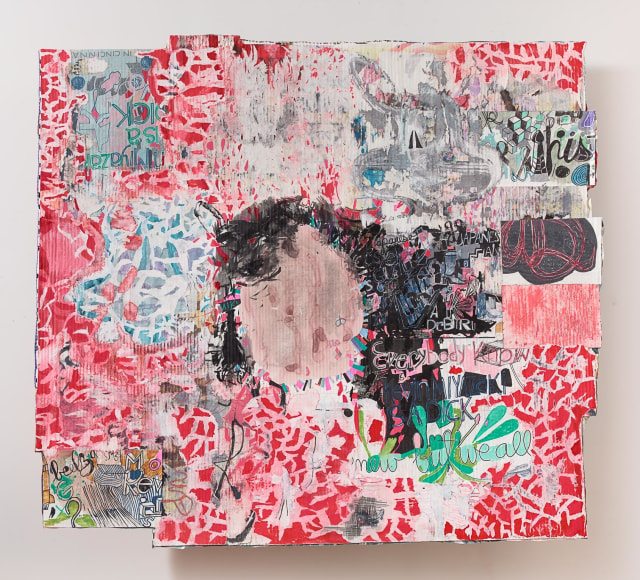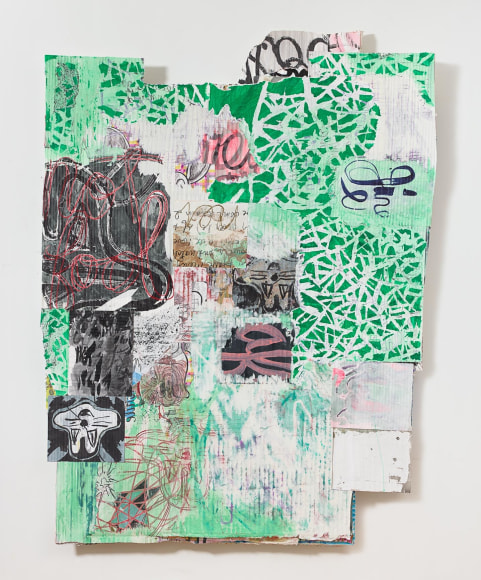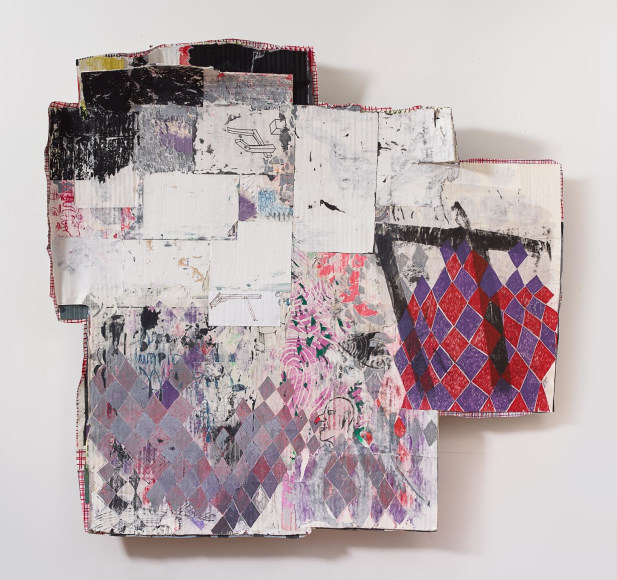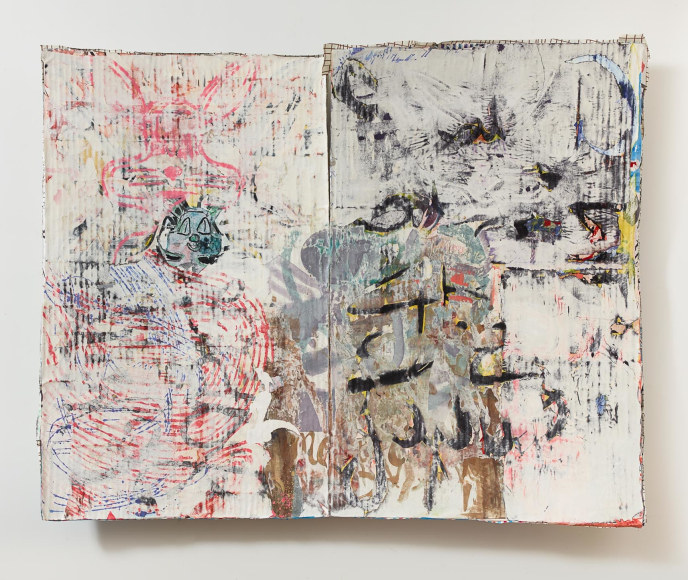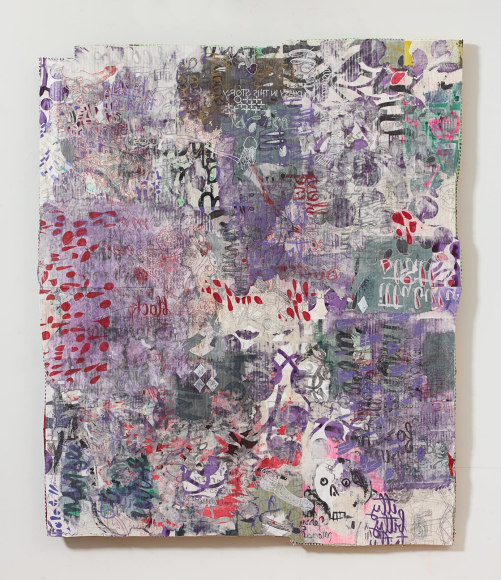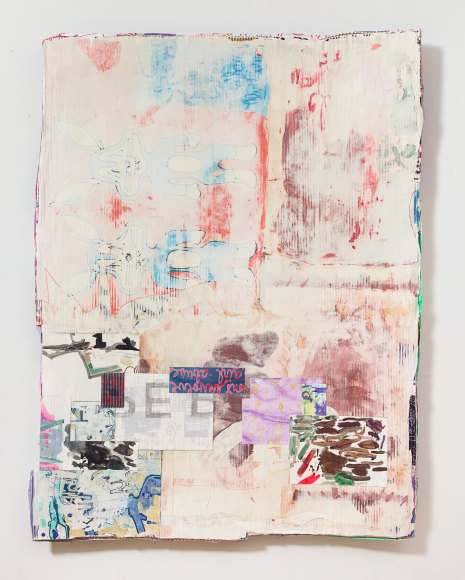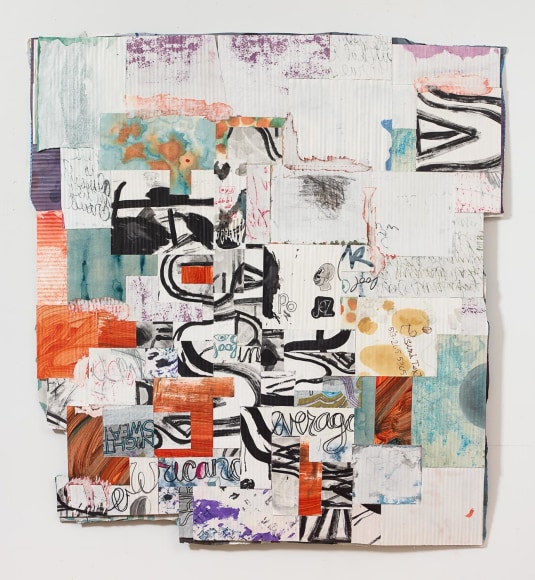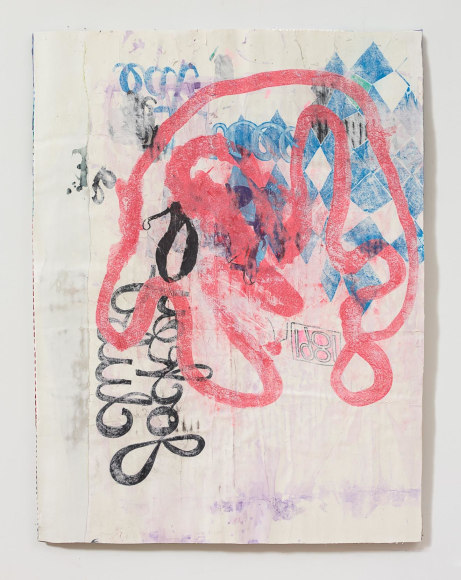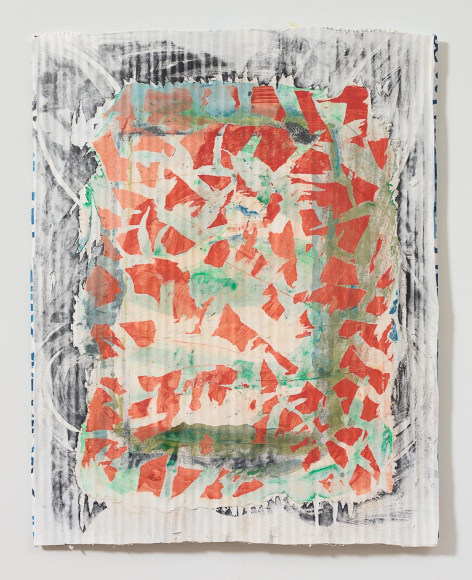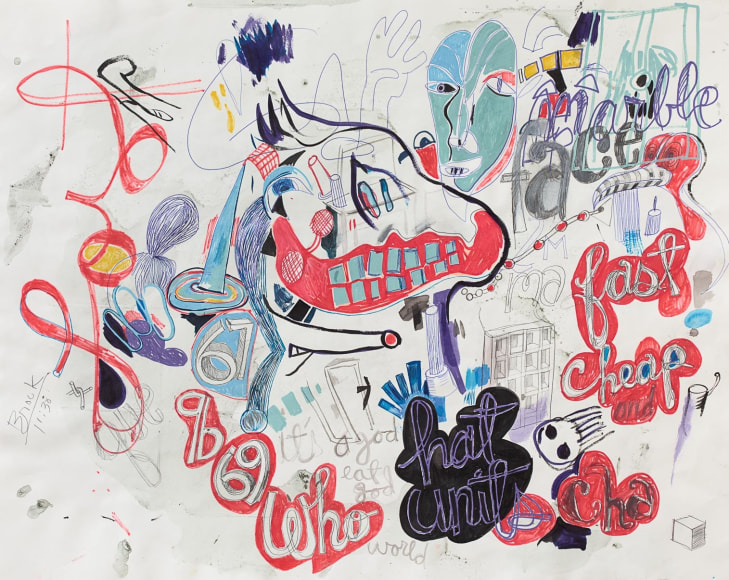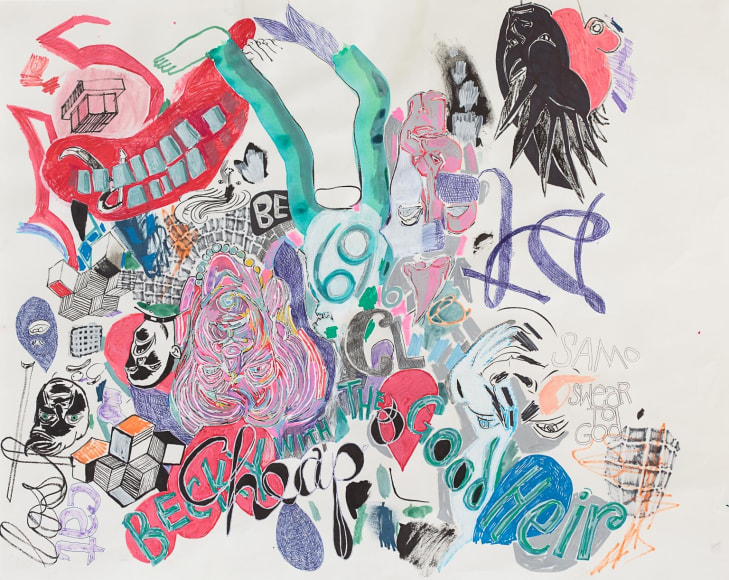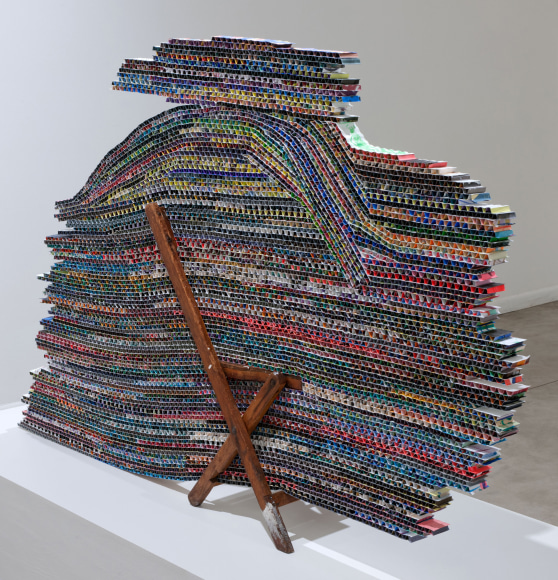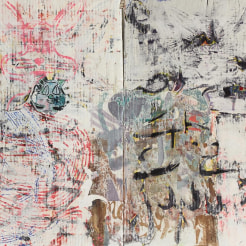Berggruen Gallery is pleased to present an exhibition of new works by Mark Fox on view September 7 – October 28, 2017. The gallery will host a reception for the artist on Thursday, September 7 from 5:00 to 8:00 p.m. The exhibition will highlight large and small-scale drawings and sculptures from Fox’s most recent explorations into the potential of paper.
Fox is best known for his use of the paper medium, both as a two-dimensional surface on which to draw and paint and as an object that can be formed and manipulated to create three-dimensional sculptures. He is constantly uncovering new ways to utilize paper and its power to dispense information. To the artist, paper is simultaneously a two-dimensional support and three-dimensional form, both object and subject, both physical and abstract.
In Fox’s studio practice, everything starts with drawing. Even though much of his work ultimately becomes three-dimensional, he arrives at his sculptural forms through a focus on creating two-dimensional images. Fox typically incorporates stains, spills, lists, even phone numbers that accrue on the paper in his studio while he draws. This combination of random and intentional mark-making contributes to a whimsical visual lexicon that includes doodles, cartoon figures, cultural icons, innuendo, and word play. While drawing, he sometimes delves into a process akin to automatic writing where images and text emerge in a stream-of-consciousness manner. This can result in more than a hundred drawings from a single mantra-like session. At times, while working in this way, Fox will produce a body of drawings that revolve around a single theme or recurring image. Once he has created a body of such drawings, he considers techniques for joining them into a sculptural whole.
He has developed a method for corrugating drawings to create sheets of handmade “cardboard.” Each sheet is comprised of three drawings, which are corrugated by hand, resulting in a material resembling commercial cardboard that he uses as building elements for sculptures or surfaces for further image-making. Like his drawings, Fox's sculptures and other cardboard works combine the accidental and the intentional. By imitating the ubiquitous form of commercial cardboard, he both reduces his work to a standardized aesthetic, in effect competing with a corporate product, while also commenting on its depersonalization with his own product that requires laborious manipulation and is imbued with personal imagery.
For his latest works, Fox begins with a series of drawings that he considers to be pages from a private diary, many of which contain inflammatory, confessional text and graphic imagery. Put through the hand-corrugation process, these drawings disappear into hundreds of cardboard sheets. He then combines and layers the sheets to create a rigid rectilinear surface. As he cuts into or peels away areas of the outermost layer, these works become textured with fragments of the hidden diary pages. Unexpected associations and random juxtapositions emerge. Confronted with this inadvertent pastiche of his diary, Fox responds by making intentional marks on the surface of each work.
In Not Fool, Fox tears away at the green edges of the cardboard, exposing layers of unseen drawings and flutes that form the structural integrity of the work. The artist himself does not know what will be revealed as he tears, but he persists. The torn edges remain tattered, reminding the viewer of the process by which the shades of blue and the purple cross-hatches were revealed. Fox continues to alter the work as he deliberately cuts into the surface in places, removing random rectilinear forms from the flat plane, effectively editing them out of the work. He then fills these spaces with fragments from other cardboard sheets, disrupting the continuity of the patterned grass-green surface with a sudden square of soft washed pastels. The artist does not attempt to perfectly fill these gaps between cut and filled cardboard; instead, he shows the viewer the merest glimpse of the hidden layers embedded within. In this way, Fox both reveals and obfuscates information, making his private thoughts public one moment and redacting them the next.
In his cardboard sculptures, such as Untitled (Chair), Fox often uses found objects and everyday construction materials as armatures or foundations. This choice reflects his ongoing interest in the tension between sturdy, quotidian materials and the abstract notions expressed in his drawings on paper, which form the basis of the sculptural elements. This tension runs through much of his work and harkens back to his childhood in a strict Catholic family who made their living in the construction business. Fox was taught to live by lofty dogmas and mystical beliefs while work-a-day objects and functional concerns governed his daily life.
Mark Fox was born in Cincinnati, Ohio in 1963. He received his Bachelor of Fine Art from Washington University in St. Louis and his Master of Fine Art from Stanford University. Fox has received numerous accolades and residencies, notably from the Versailles Foundation, Munn Artist Fellowship, Giverny, France; Foundation and Center for Contemporary Art, Prague, Czech Republic; Working Space, Awarded by Kultureferat, Munich, Germany; Headlands Center for the Arts, Sausalito; and Detroit Institute of Arts, Detroit. His work is featured in numerous public and private collections, including the Museum of Modern Art, New York; the Whitney Museum of American Art, New York; the Albright-Knox Art Gallery, Buffalo; the Philadelphia Museum of Art, Philadelphia; and the Anderson Collection, Stanford University. Recent solo and two-person exhibitions include Intersections: Giverny: Journal of an Unseen Garden, Norton Museum of Art, West Palm Beach; and Constructive Interference: Tauba Auerbach and Mark Fox, Anderson Collection, Stanford University. Fox lives and works in New York City.
Mark Fox, September 7 – October 28, 2017. On view at 10 Hawthorne Street, San Francisco, CA 94105. Images and preview are available upon request. For all inquiries, please contact the gallery by phone (415) 781-4629 or by email info@berggruen.com.

